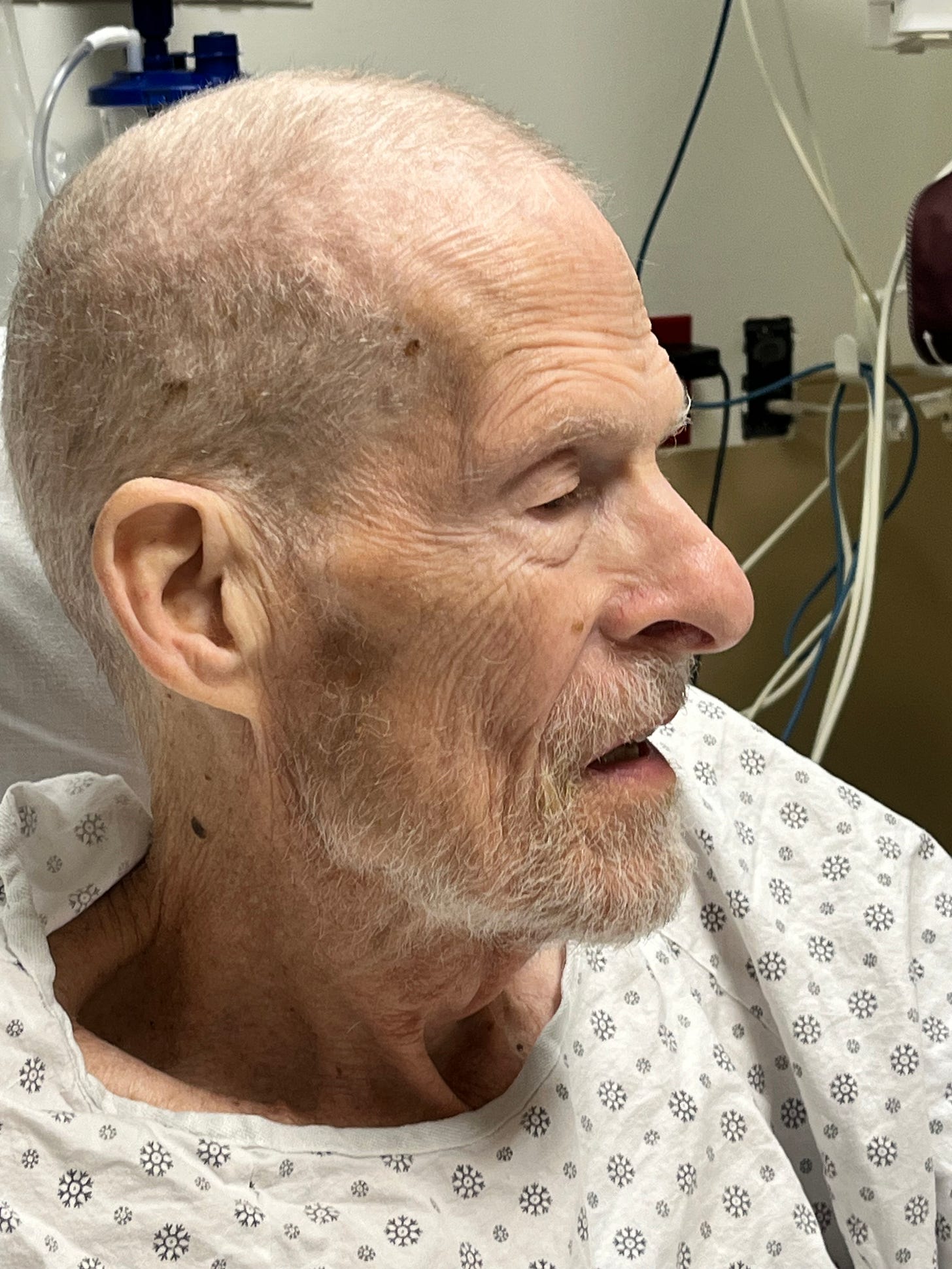This is not what he wanted. None of this is what he wanted.
At 75, my brother had finally conceded that it was time to retire. He wasn’t feeling too well these days but he didn’t want to give up his work life. There would be no more solving the complex puzzles of his college’s antiquated computer network, a challenge he enjoyed. No more weaving through Bronx and Queens traffic every day to his college. He would retire and putter around the house between river cruises in Europe with his wife, an energetic, charismatic retired professor of labor history. He would finally clean up his lair in the basement of their 1920s-era home in Bronxville. He would have time to train new leaders to take on his roles as an antiwar activist and union leader. He could enjoy life.
Instead, the Saturday before he was to start working part-time, they walked to a farmer’s market in the neighborhood, as they usually did in warm weather. His wife noticed that his skin was oddly dark. She called the Veterans Administration medical office; a nurse answered, heard his symptoms, and said, “You need to get to an emergency room. Now.”
By the end of the day, after learning about additional symptoms my brother had been concealing for some months, an ER doctor was quietly shattering their world. Ben had stage 3 or 4 pancreatic cancer. There would be tests, of course, but there wasn’t really any question about the disease itself.
Now, six months later, I sat in his room in the hospice unit of Calvary Hospital, a Catholic hospital about half an hour from their home. Only three weeks before, I and our younger brother had been visiting. He could still walk, slowly, on a walker, to the bathroom. He could cling his way up the bannister to their bedroom on the second floor. He could eat, though it was hard to find foods he wanted to eat. He was querulous, irritable. His wife bemoaned all the foods she was throwing away in the search for appetizing ones. Now he had stopped eating and could only take a thickened water that didn’t cause him to cough. He liked the lullaby of National Public Radio.
He would sleep, mouth open, uneasily. But more and more hours were lost in sleep until interrupted by pain. The ward was filled with skeletal figures like him in their private rooms. Most had no visitors, but one had a display of flowers that perfumed the entire ward extravagantly. A new patient arrived and periodically yelled in a high, clear voice, like an opera singer practicing. “Help! Help,” he would cry out. It was forbidden for anyone but staff to enter unrelated patients’ rooms.
My brother’s world had stopped at the needs of his body: his dry mouth, his painful midsection where the cancer infested his pancreas and now his liver, his bone-thin legs. Every once in a while in the past days he had been stimulated to something like his habitual wit. I asked him, “Who am I?” and he answered, “Isabella of Spain” with a tiny grimace. More often, he fretted about his hallucinations. He should arrange to vote absentee in Cheshire (in Connecticut, where he did not live). He needed me to pick up his cane off the floor (the cane was at home). He should be careful with his walker on the stairs (the walker was in the trunk of his wife’s car).
About three days before the end, while he could still speak, he complained that the staff seemed to be preparing him for death, not trying to cure him anymore. He wanted this to be different. He wanted to be cured. I cajoled him, distracted him, fed him ice chips, held his hand. But I could not make the words, “You are dying,” pass my lips. I could only say, “It’s okay,” meaning “You can let go,” but never explicitly saying so.
It is hard to turn a man’s face toward death.
Of us all, the one who could give him that permission was his wife, only she whose heart was breaking and would remain broken. I could not. I couldn’t take him that far. In the end, it was she who walked him to the gate. And then, as she held his hand, it loosened and he passed through.
She talks with him now. When she sees him in her visions, he tells her not to worry. He says there is no past and no future. There is only one time. And he laughs —uproariously.





Sad but lovely way to honor your brother's memory. If it can be said that it is a gift to be with a loved one at the time of their passing, it is a uniquely difficult gift.
This is heartbreakingly beautiful, Em.